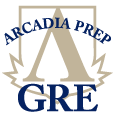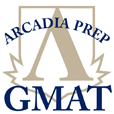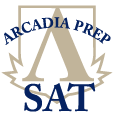This landscape is as morning-fresh as a design in India ink on clean white ... ...
---Consider all of the choices and select all that apply.---
It has been suggested that part of Hemingway’s genius lies in the way in which he removes himself from his stories in order to let readers experience the stories for themselves. Which of the following elements of the passage support this suggestion?
(A) The comparison of “the designer’s initials” to the man who fell and lay in the gutter (bold, last paragraph) during the running of the bulls
(B) ...
(C) ...
(D) ...
(E) ...
*This question is included in
Nova Reading - Extra Reading:
Replies to This Thread: 0
|
----
Posted: 05/28/2012 14:53
I agree with your answer for B, but am confused. I have gotten some questions wrong for picking answers that are not in the passage through inference. This answer was not in the passage. Nothing in the paragraph stated that Hemingway was inconspicuous, although there was in the next paragraph. When are you supposed to infer and when do you only look directly in the paragraph?
Replies to This Thread: 0
|
----
Posted: 08/06/2012 07:38
How is C wrong? It often feels like something is either left out of the reading or the answer doesn't match up with the explanation. In this case his ability to tell a tale from his own experiences is exactly what he is doing, and does not match the explanation given.

Admin
Replies to This Thread: 0
|
----
Posted: 08/06/2012 19:25
Cef Usa, it seems that the phrase "invent fascinating tales" has a ring of creating one's own tall tales instead of the sense of letting the reader experience "the way it was".
Replies to This Thread: 1
|
----
Posted: 02/18/2013 07:37
It states "select all" above the question; but then in the question it asks for "which", confusing, "which or which ones" would be better. Is that the way it's stated on the GRE? (Especially as many of the answer choices in this section aren't aligned with the questions; that is; "select all", but it's just possible to pick one.

Admin
Reply 1 of 1
Replies to This Thread: 0
|
----
Posted: 02/28/2013 04:45
Hi Asa,
If the question asks you to "select all that apply," then asking, "'which' of the following is true" would be a correct way of wording it. "Which" includes the possibility of more than one, so saying, "which or which ones" is redundant, and probably ungrammatical. At least, it's not idiomatic: Saying "Which ones of the following..." does not sound right.
Also, when the directions say "select all that apply," the answer can still be only one answer-choice.
With standard multiple-choice questions (those that have just one answer), it would be more accurate to say "which one." But sample questions at the official GRE website say just "which."
Before the test had questions with more than one correct answer, you could argue that the context was clear that there was only one answer. I don't know whether the GRE says "which" instead of "which one" intentionally or whether it is just sloppiness. The LSAT, which is a more carefully written test, appears to always say "which one," even though all LSAT questions have only one answer.
Nova Press










